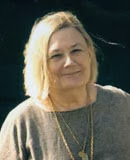About Me

- Anita Burgh
- I am a writer - late developer since I wasn't published until I was 50. I have now written 23 novels, numerous short stories and articles.
Followers
Blog Archive
My Blog List
Powered by Blogger.
Slideshow
Sunday, 25 October 2009
We agreed, as there are so many stories and writers so there are many different ways to write a novel. Whichever route you take it is an awesome task. I am always amazed when holding that first copy of a new novel in my hands to think – Did I really do this? Such is the uphill climb, such is the enormity of the task.
Please remember that all these little blogs I write are telling you how I do it, not how it should be done. This is never more obvious than in the setting out.
Themes
I have begun every single book I’ve written with a theme.
There are the stalwarts:
Rags to riches.
Rites of passage.
Prodigals
And then I have my own which do vary and yet at the same time they are recurring. Class.
Rejection (social and emotional.)
Affect of money.
Relocation (taking a person from a familiar environment and into an unfamiliar.) These four constantly bubble away beneath a main abstract theme – for example sibling rivalry or jealousy or grief.
When a possible theme sticks in my mind I will then mull it over. I sometimes brainstorm and write a list of words relevant to this theme.
For e.g. Family was the theme. So I made my list, and a very long one it was. Love, marriage, birth, betrayal, jealousy, rivalry, death etc etc. Then I made notes against various words which I felt I might use later – some I did but most did not feature. But in doing this exercise, thought processes get kicked into action and, being a non-plotter, I have a starting point of sorts.
A theme, you see, is not the plot, it is the impetus behind it and helps propel it.
It needs thought and a lot of it, for, this theme you choose needs to be strong enough to sustain the whole novel. And one that can diversify thus creating other strands to expand the plot – create sub-plots.
And this theme can be so strong, so big, that in fact it becomes the plot.
An example of this is Clare’s War. The theme was war. But which war? Why war? What kinds of war? In the finished novel there are three ‘wars’ winding through. The war of the allies against the Germans.
The war of the French against the Vichy government.
And Clare’s personal war as she changes from child to woman.
Why are my themes recurring? Because they are important to me.
Relocation because as a child I was evacuated from a terrace house to a stately home, and it affected the rest of my life.
Class because in the 50s I experienced the intolerance of the English class prejudice first hand and it angered me.
Rejection because it is akin to class and emotional rejection never leaves one.
Money I have witnessed how often an abundance of money can damage lives.
For me it is a good way to start but it might not be for you.
From my theme, you see, my plot evolves.
Subscribe to:
Post Comments
(Atom)






Annie - I love you!!!!
ReplyDelete'A theme, you see, is not the plot, it is the impetus behind it and helps propel it.'
'From my theme, you see, my plot evolves.'
It is such perfect time since I have decided to do NaNoMo...and it is forcing me to actually do more thinking about Pilgrimage before I start. You as of this morning I had the title, my heroine's name- Pru, location-somewhere in Cornwall, and IVF........Not a plot in sight but a starting point. BUT theme, I usually discover after the first draft when it hits me over the head...maybe I should think about theme first????
lx